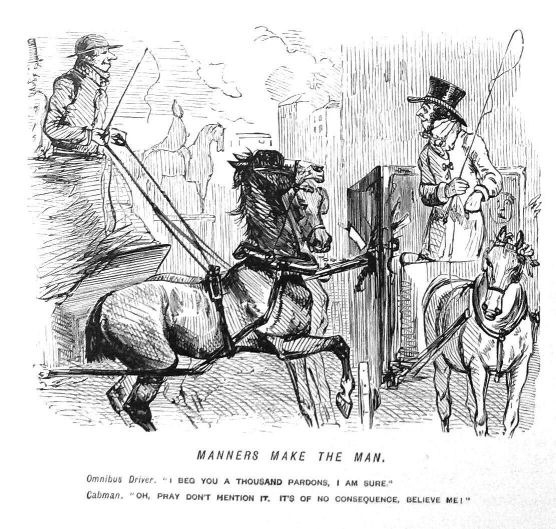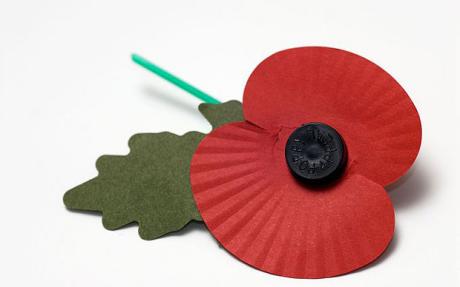Happy New Year! I hope you enjoyed the Christmas break? I managed to get away for a few days – and, during a long car ride, caught snippets of the BBC Radio 4 programme You and Yours, where Julian Worricker asked members of the public how the modern family has influenced the way we celebrate the holidays: ‘Tell us how the breakdown of a relationship or divorce has changed the way you spend the holidays. How difficult do you find it to please everyone from kids to in-laws to former partners and members of the step family?’
It’s amazing how lifestyles have changed over such a short space of time – I found myself asking if, in the traditional family, everyone would necessarily expect to be pleased with their lot at Christmas? They would certainly know their place in a tried and tested social structure, and would probably accept whatever treatment they received as a consequence of this.
Traditional family life is based on a mass of unwritten laws or conventions, which essentially boils down to good manners. In the words of the late Dame Barbara Cartland, “The family, and therefore ultimately, human happiness, flourishes or withers by the practice of good manners… Tradition emerges slowly from experience of failure and success. It gives you an anchor in life and provides a set of rules which has in the past proved to be worth following. Today, unfortunately, we are too bemused with progress. We tend to believe that anything new must, ipso facto, be better than the old so that we not only remain ignorant of the heritage of the past with its customs, conventions and traditions, but we do not even trouble to know what they are.”
Unlike Hyacinth Bouquet, I’ve never read any of Barbara Cartland’s romantic novels, but I did spend Christmas browsing through her Etiquette Handbook – A guide to good behaviour from the boudoir to the bedroom – which, to me, seemed all very sound stuff (even though it was written in 1962):
“It is not really important to know the correct way of addressing an Archbishop, whether a cake should be eaten with fingers or a fork, or if you should put the milk in the tea-cup before or after you have poured the tea. But it is important to cultivate an ability to merge with the pattern of one’s fellow human beings without jarring their sensibilities”
“Times change, fashion changes, but one thing remains – the fundamental decency and common sense of human beings, who sooner or later, elect to throw overboard the pretentious, hypocritical and the absurd. It is inherent in mankind to always be seeking the simple and natural.”
Of course, Dame Barbara’s ‘simple and natural’ may be a little different to our own, “It is the naturalness of the Queen, Prince Philip and the Queen Mother which delights everyone who meets them. It results from unselfconsciousness and an unfailing wish to please.”
And, with Cartland, where there’s romance, there should always be manners: “The self-discipline of good behaviour should never be dropped within the home, least of all by the husband and wife. It is theirs to set the example of harmony, tolerance, consideration and gentleness which will be reflected in other members of the family, and thereby in the social group and the nation itself.”
Which back in the early 1960s meant “The man should open the windows before he gets into bed. A wife should see that the clocks are right so that there is no rush in the morning. She should also see that her husband has a clean aired shirt and fresh socks ready to put on the next day…Unless she is ill, a woman should get up and cook her husband’s breakfast before he goes to work in the morning… It is bad manners to do this in curlers, without lipstick, in a shabby dressing-gown and down-at-heel slippers.”
How times have changed. Along with the traditional family, the fundamental belief that good manners begin at home is something we clearly seem to have forgotten about. The problem is that, in most cases, we no longer have the husband and wife. Advice these days comes in the form of appropriately worded warnings, like that given to author Elizabeth Gilbert by her sister, “Having a baby is like getting a tattoo on your face. You really need to be certain it’s what you want before you commit.”
William of Wykeham’s motto for Winchester College, ‘Manners Makyth Man’ meant in the medieval English of his day, ‘Character makes a man.’ However, good behaviour is not instinctive and has to be taught from an early age. Even with the most basic of education, there should surely be no excuse for anyone, from a dustman to a diplomat, to not have at least some understanding of good manners?
Thankfully, a quick search on the internet shows that, as manners maketh money, etiquette classes and specialist schools of etiquette for children are now becoming all the rage – especially in the United States and surprisingly even in Australia (evidence of civilization at last).
So long as we have good manners, is the traditional family structure still necessary?











Thank you Susan for this timely reminder of an age that has past. Although in your and my lifetime the advances in science and technology have brought undreamed-of improvements to the fabric of our lives, there has been a paradoxical downward curve in the graph that measures the quality of our lives, the quality (including manners) that enriches our lives and, ultimately, makes them worth living. What a modern tragedy it is that youngsters can no longer learn good behaviour at their mother’s knee, but feel the need to enroll in classes to correct the problems that they have learned at school and in the home.
Happy new year Susan. Ah, wie es war. We now live in a post civility world, holding doors open now simply attracting hackies from the recipients and of late engendering the response from me ‘you’re welcome, petal’
The blame of course lies firmly at the doors of….the baby boomers, whoever they are, the teaching profession, parents, the BBC, Facebook, Tesco’s cut price booze, Harriet Harman, the working class, the middle class and the upper class, Dr Spock, Dr Marten and Dr Hook or possibly just Alastair Campbell.
Not sure about this thesis. I wouldn’t deny that it’s easy to find examples of bad manners. But then my Cockney-born step-grandfather loathed the appalling manners of his relations and was thankful to escape that society, mostly because of the way people behaved. I would also bet there’s less litter around nowadays than there was when I was growing up in the ’70s and ’80s, potentially an indicator of civility. I remember the banks of the Taff being strewn with all sorts of rubbish. It’s now clean and even attractive in places.
We also mustn’t forget we are a more civil society in ways that are very important. We no longer see signs in B&Bs stating ‘no blacks, no Irish, no dogs’; violence against women in marriage is no longer tacitly tolerated; snobbery isn’t as influential in keeping people in their place, one use of manners being just that; and so on.
And I’ve never once been heckled for opening a door (even in Islington). The worst that’s happened is an ignoral, but they are few and far between.
Yes, Mahlerman, manners have taken something of a downward turn with improvements in technology… makes me think of all the times I’ve been sat on a train quietly minding my own business, or reading a book, next to someone loudly using a mobile phone or iPod.
Gaw, agreed, the streets may be cleaner, but some of the things you mention I’d categorize as prejudice rather than civility…
I blame Sylvia’s mother, malty.
Not sure about this thesis. I wouldn’t deny that it’s easy to find examples of bad manners …
I have to agree with GAW on this. Crank the WayBack Machine to the 1970s, and cinema was rife with dystopian urban nightmare movies encouraged, in part, by the ongoing breakdown in social mores and manners.
Yet in the US, almost everyone I run into is polite (with cellphone offenses being the largest exception), and the crime rate has been plummeting to below levels anyone would have thought beyond imagining at the time.
I have never been heckled for opening a door; quite the opposite, in fact.
Hey Skipper, I hope that American politeness is headed this way!
I’m not sure which movies you are referring to, but your comment brought to mind the retro filmFar from Heaven where it’s not so much the manners as the sexism, racism and homophobia that seem to be a problem.
In my experience, people were generally more gracious and considerate towards each other a few decades ago. The rebellious youth of the ’60s and ’70s were still ingrained with the standards of their parents regarding things like relationships, dress and means of communication. Everything today seems more casual and sloppy – like we don’t need to care if we hurt someone’s feelings, or we can’t write a letter, or we push in front of someone in the queue… I have fond memories of the days when men enjoyed charming ladies by giving up their seats on public transport and being chivalrous towards us.
I’m not sure which movies you are referring to …
Any of the Dirty Harry movies, or the Charles Bronson vigilante films.
Everything today seems more casual and sloppy – like we don’t need to care if we hurt someone’s feelings …
The question being whether there is more of it, or (I’m guessing you are about my age) we are becoming more sensitive to what was always there, in one form or another.
I think you are probably right about younger men being less chivalrous, the problem being that women want it both ways, and men don’t realize that resistance is futile.
Which reminds me: Early in 2000, I was interviewing for a job as a pilot with Northwest Airlines. I had been in the atrium for about 10 minutes when They sent a Captain out to usher me in, facing me with two urgent problems: suppressing any visible signs of surprise that the Captain was a she, and then going through about thirty yes-no cycles in trying to decide whether to open the door to the interview room for her.
Landed on yes. Got the job.
Note: women never suffer this form of torture.